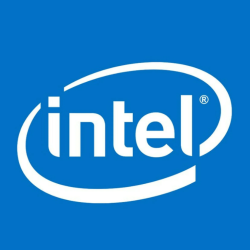
What's the best choice Matrox LUMA A310F or ASRock Intel Arc A750 Challenger D 8GB OC? Which graphics card is faster?
We have prepared a comparison to help you choose the best graphics card. Compare their specifications and benchmarks.
Matrox LUMA A310F has a maximum frequency of 2.000 GHz. Memory size 4 GB. Memory type GDDR6. Released in Q2/2023.
ASRock Intel Arc A750 Challenger D 8GB OC has a maximum frequency of 2.200 GHz+ 7 %. Memory size 8 GB. Memory type GDDR6. Released in Q4/2022.
 Reasons to consider
Reasons to consider Common positions Matrox LUMA A310F GPU in popular benchmarks, for comparison with other models.
 Reasons to consider
Reasons to consider Higher clock speed
Around 9% better clock speed
More memory
50% more memory
Common positions ASRock Intel Arc A750 Challenger D 8GB OC GPU in popular benchmarks, for comparison with other models.
 Matrox LUMA A310F
Matrox LUMA A310F

Comparison of basic technical data of graphics cards Matrox LUMA A310F and ASRock Intel Arc A750 Challenger D 8GB OC, chip, information processing units.
Comparison of the amount of memory on board graphics cards. The more the better.
Let's compare the memory frequency of graphics cards Matrox LUMA A310F and ASRock Intel Arc A750 Challenger D 8GB OC. The higher the better.
Connectors, the number of thermal watts emitted in normal mode and at overclocking.
Types and sizes of coolers for graphics card cooling system Matrox LUMA A310F and ASRock Intel Arc A750 Challenger D 8GB OC.
Connectivity and connections.
Technical data that is used to its full potential in computer games.
Built-in support for video and image compression standards.
The difference in size, weight and slot of the compared devices
Comparison of interfaces and release dates for GPU ASRock Intel Arc A750 Challenger D 8GB OC and Matrox LUMA A310F.
Based on the results of several popular benchmarks, you can more accurately estimate the performance difference between Matrox LUMA A310F and ASRock Intel Arc A750 Challenger D 8GB OC.
Compare synthetic benchmarks and choose the best graphics card for you!